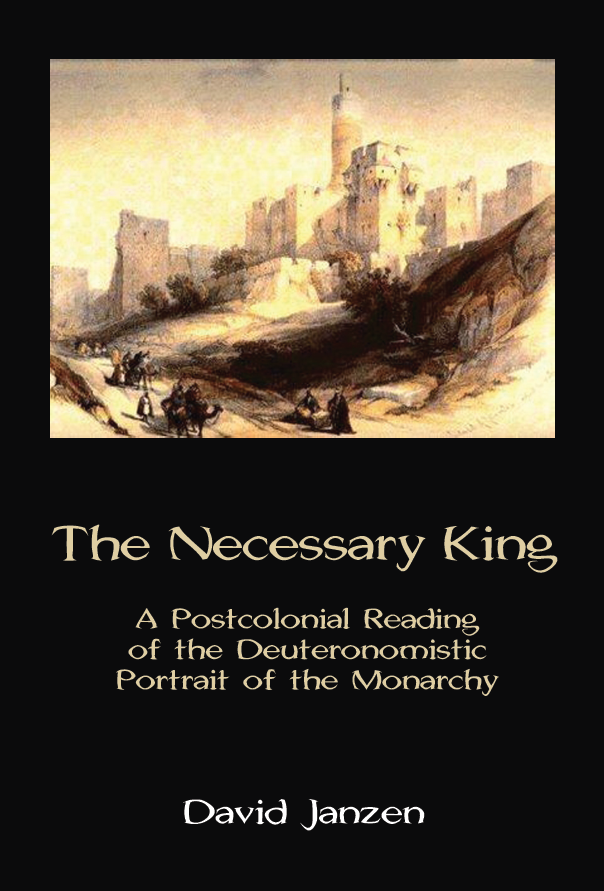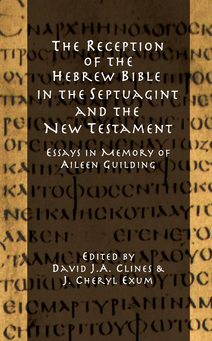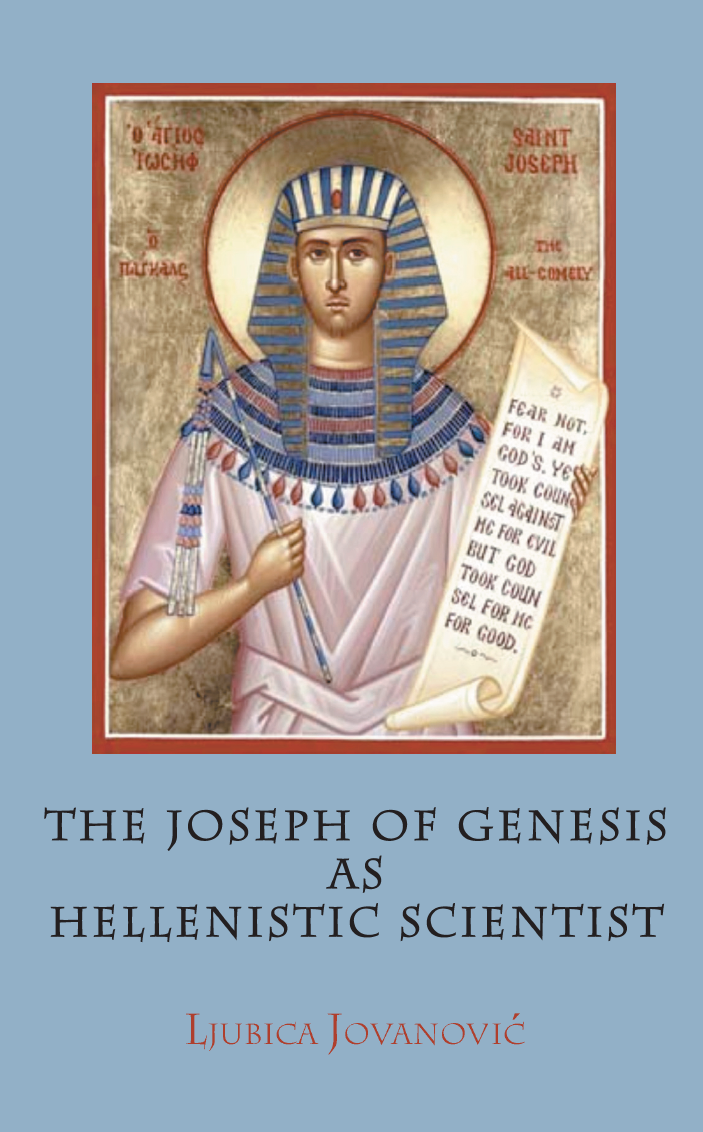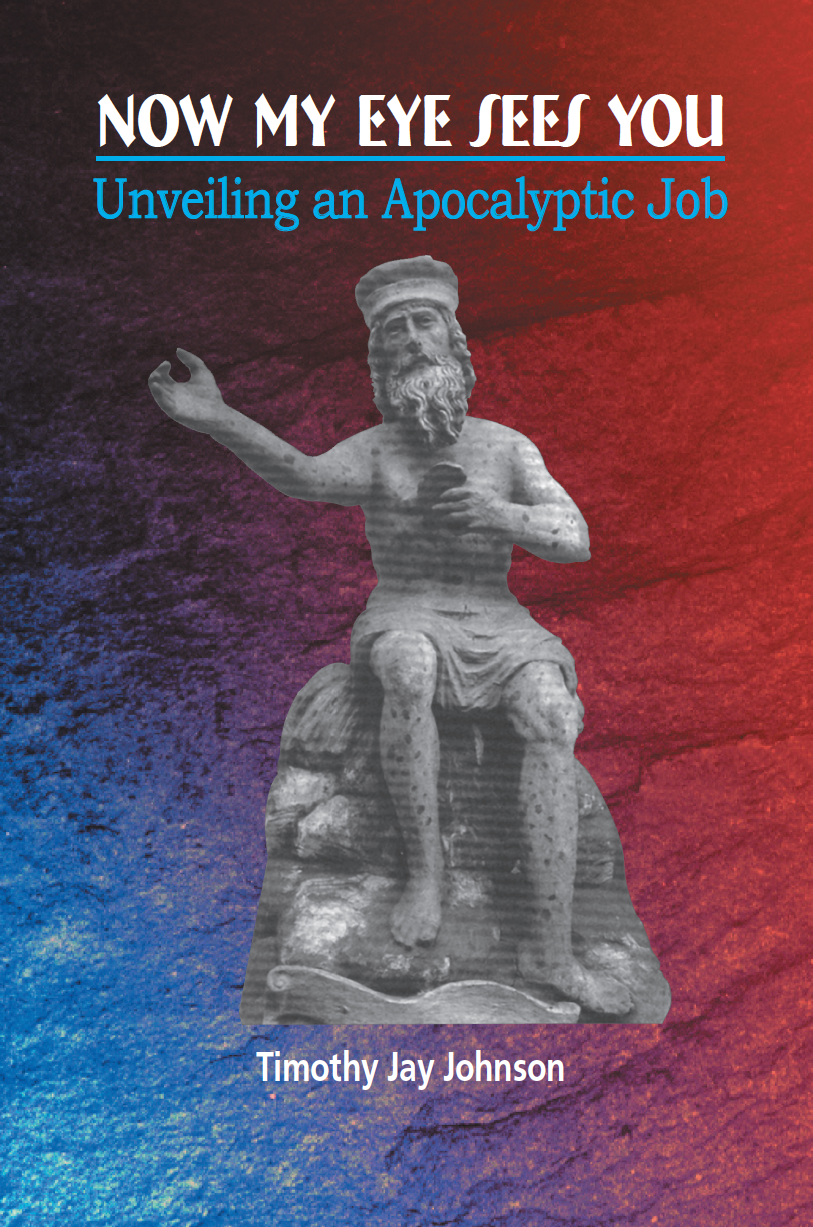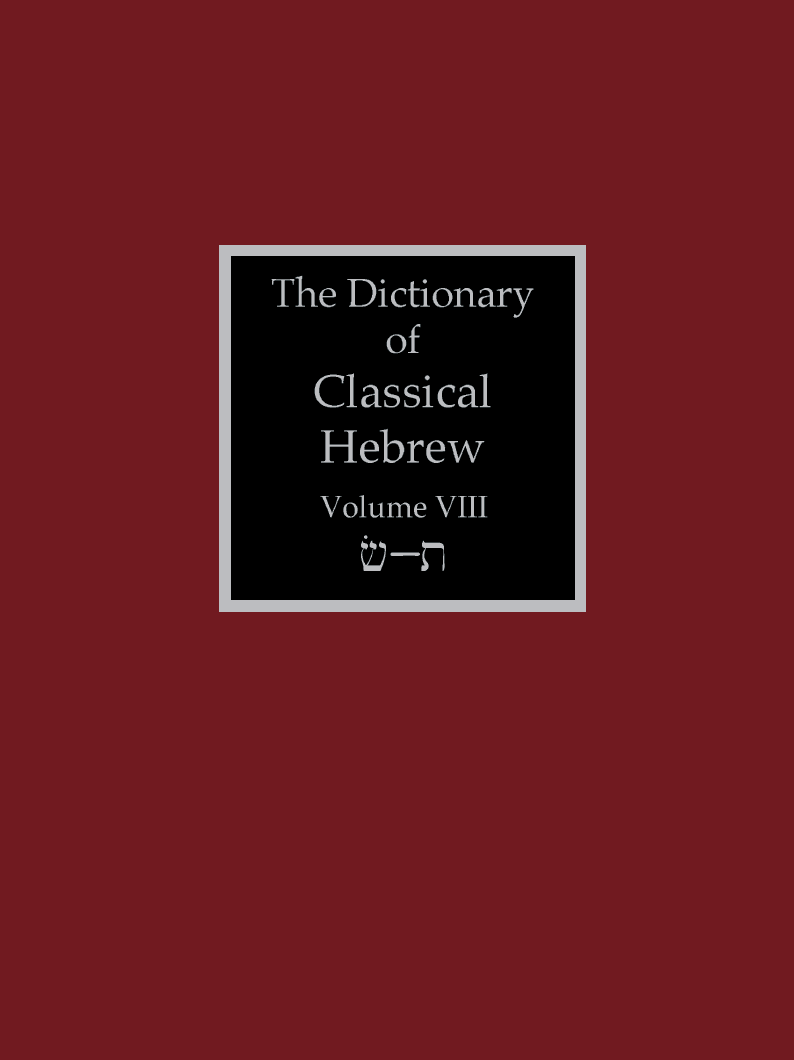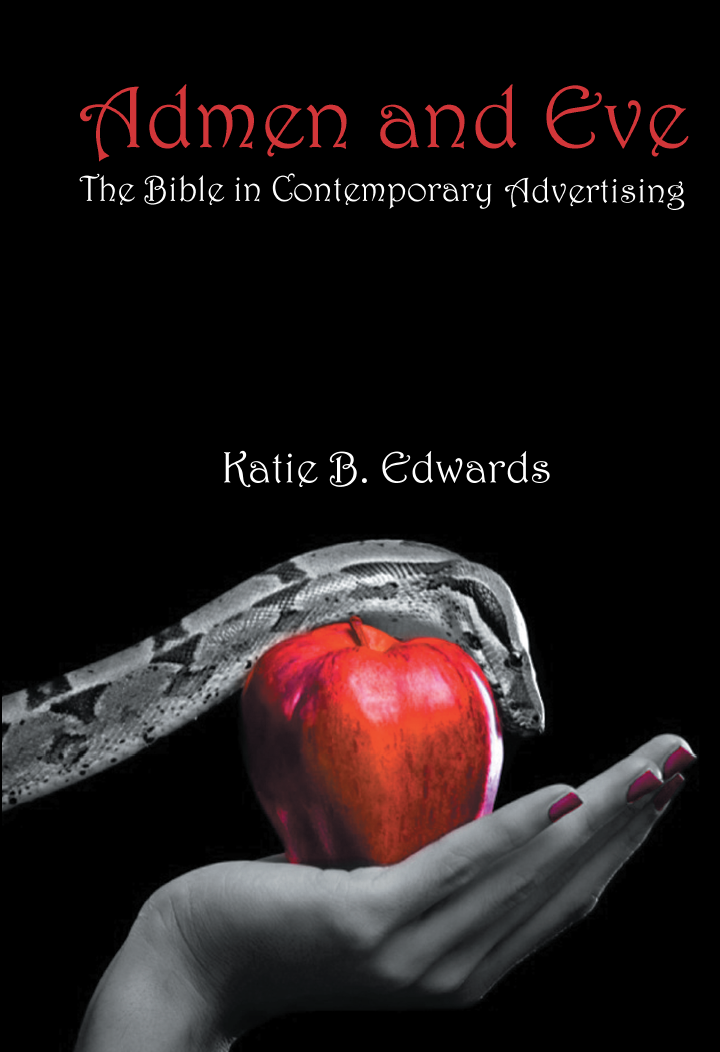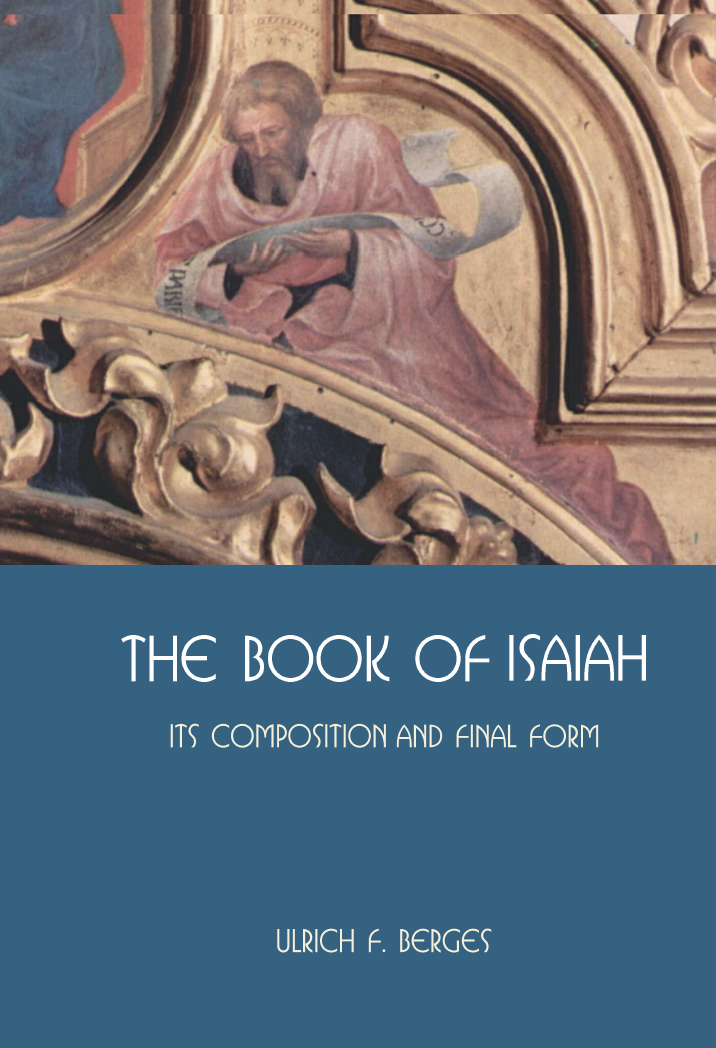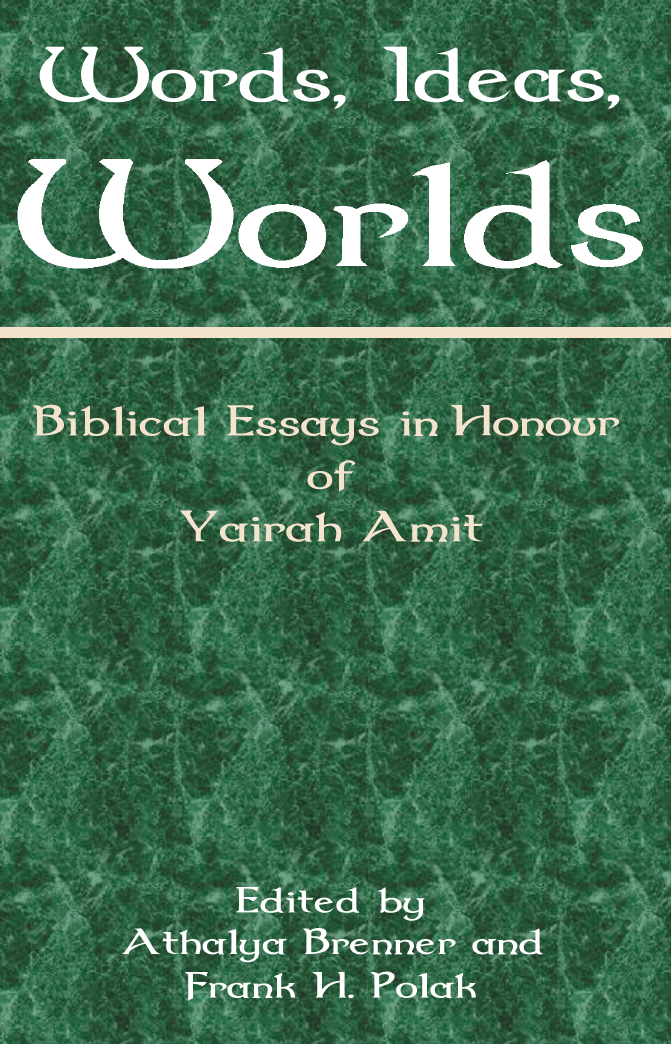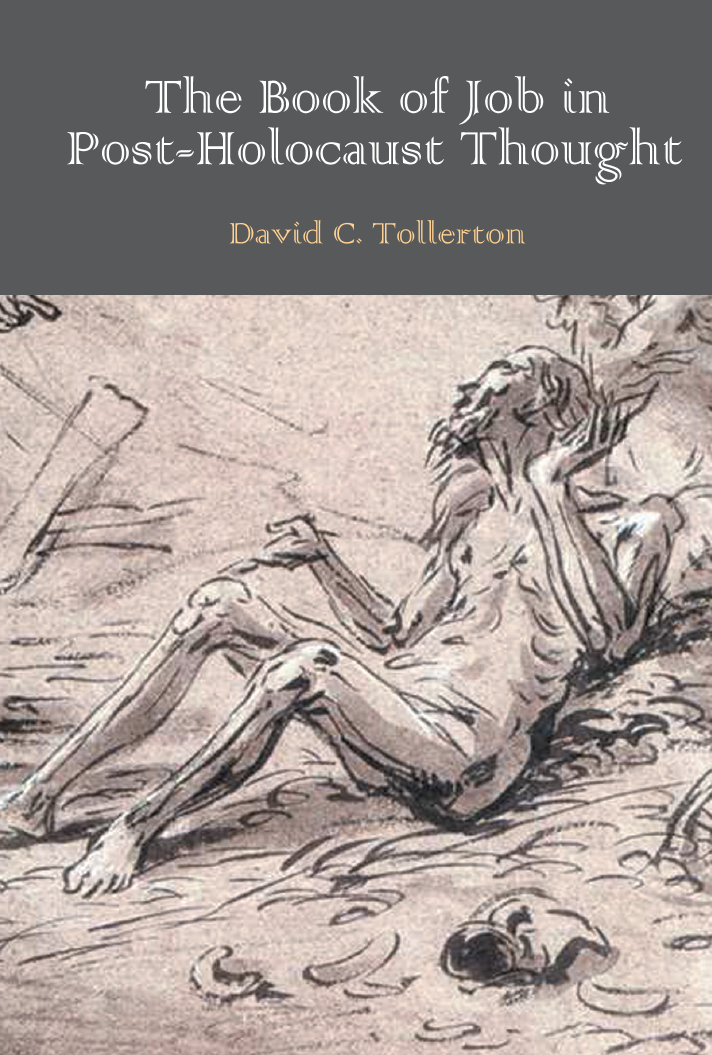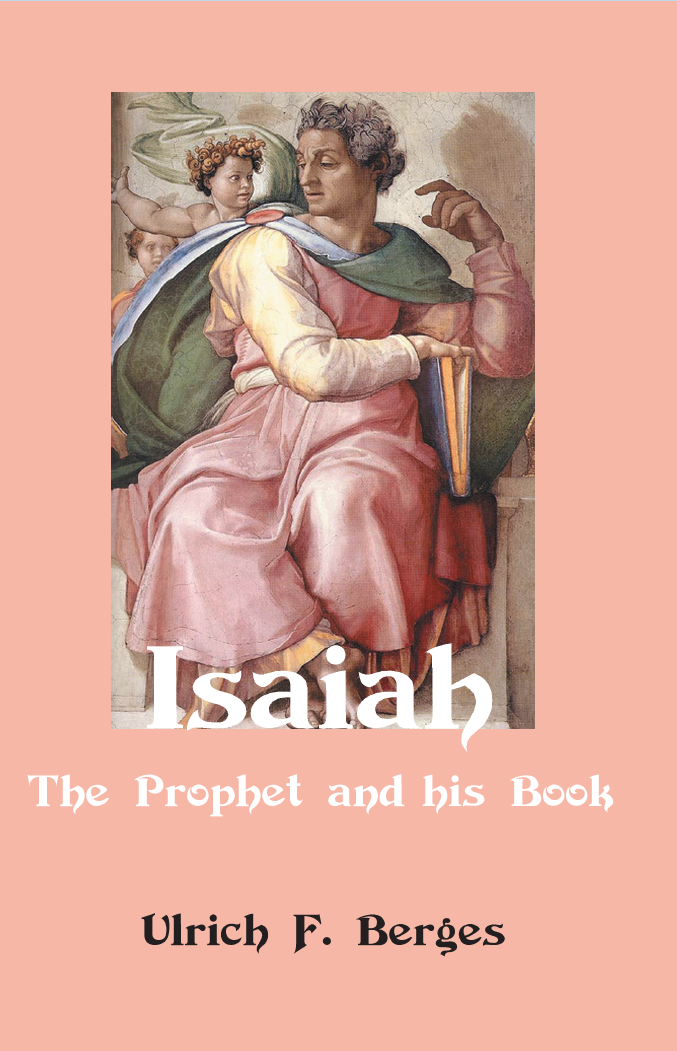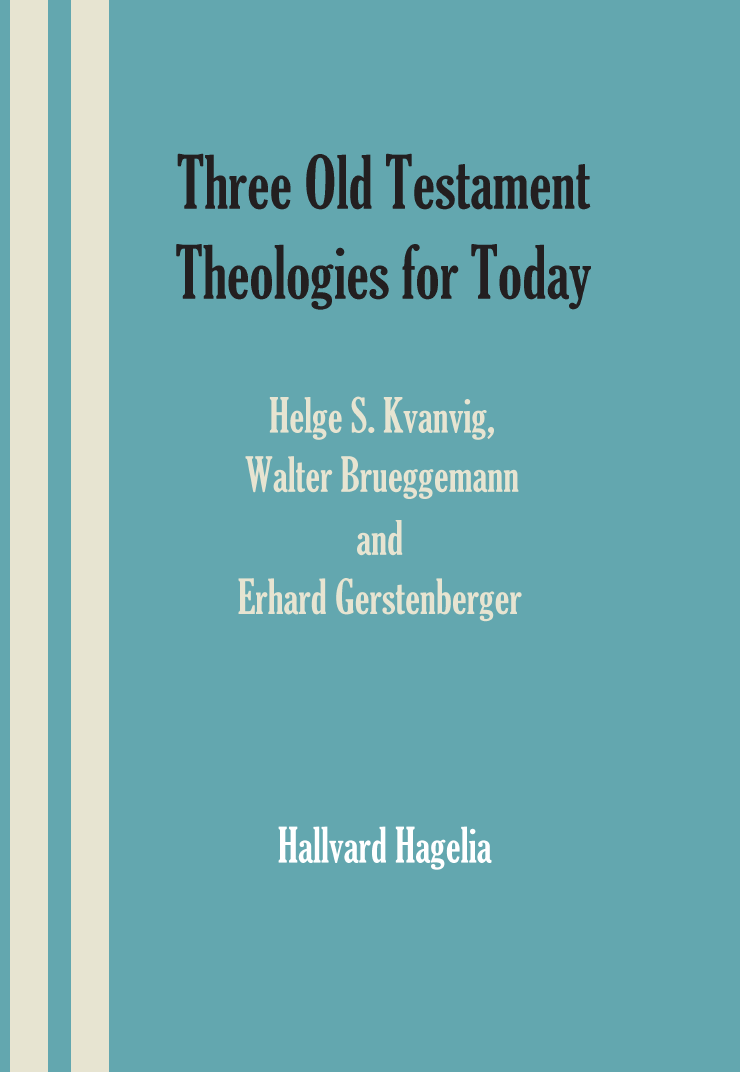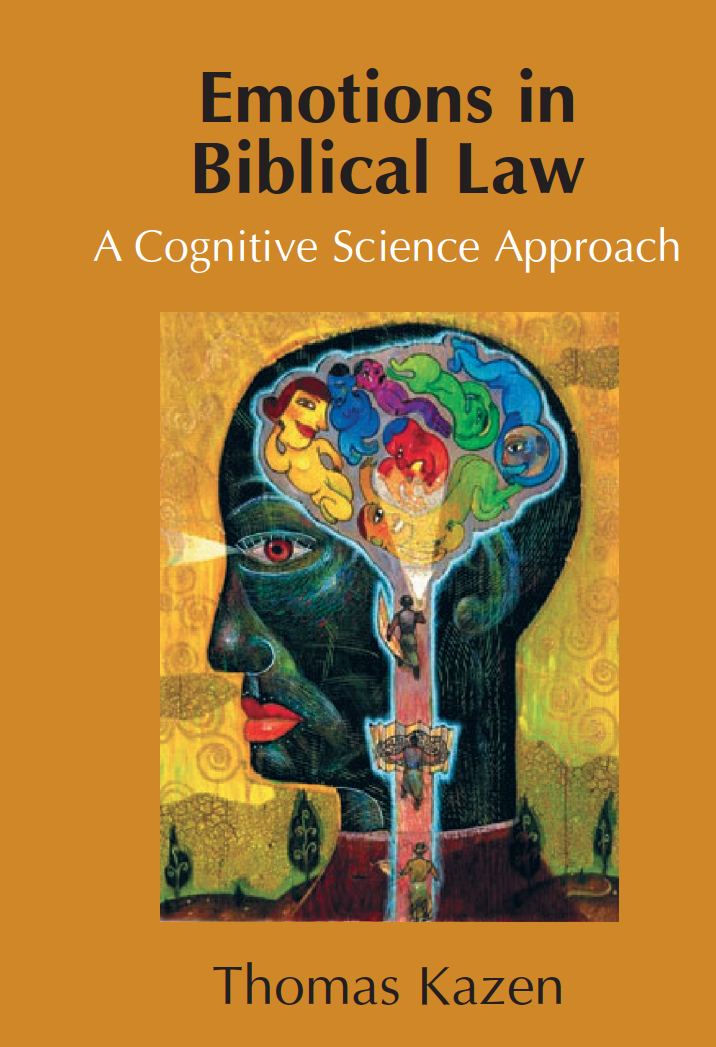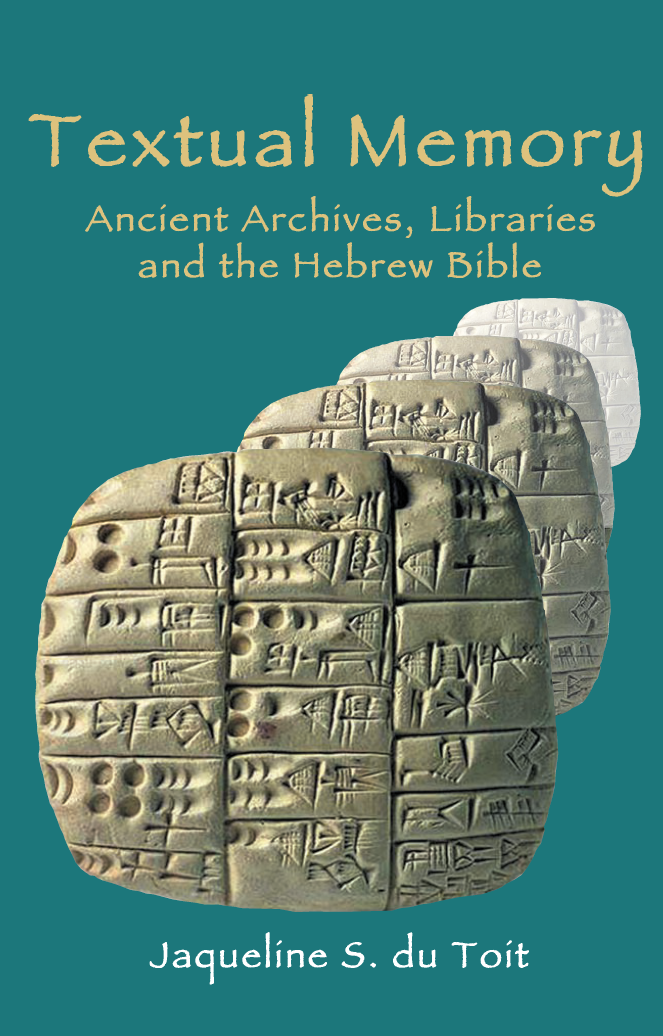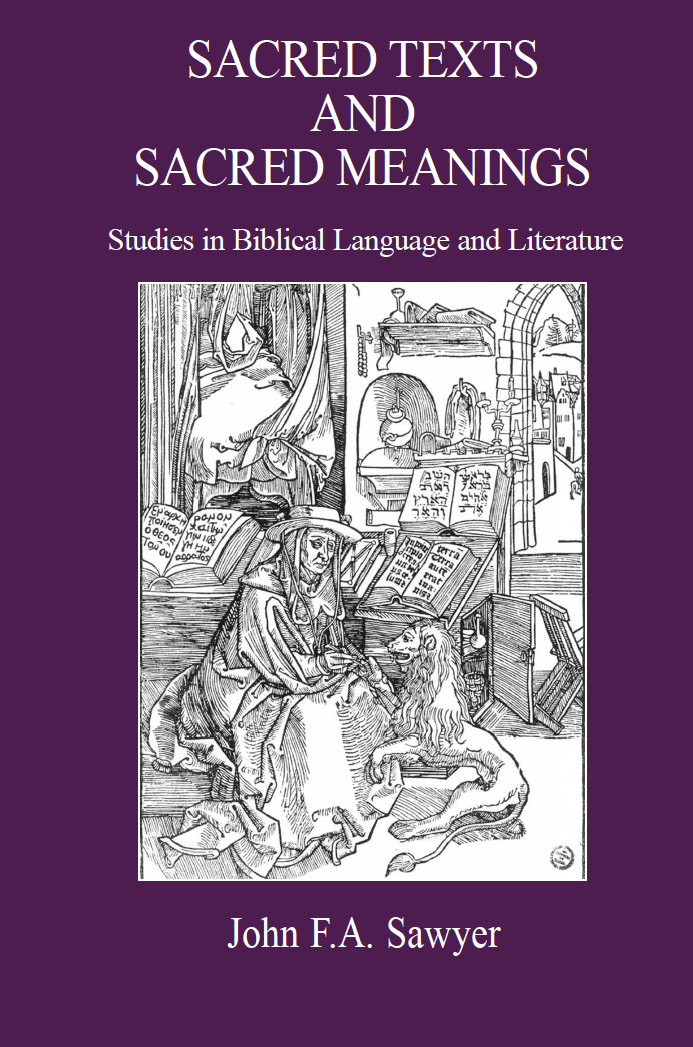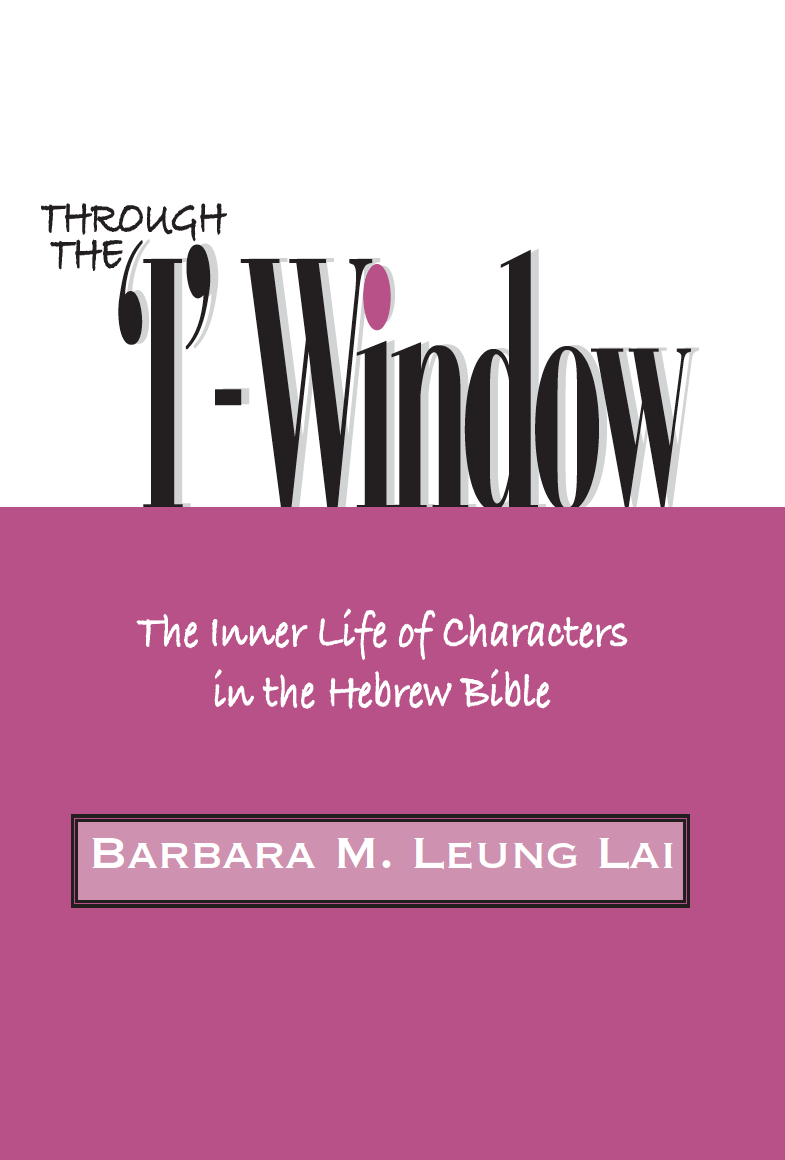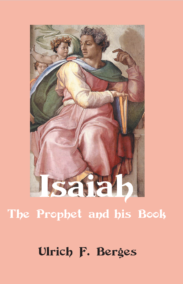The Necessary King: A Postcolonial Reading of the Deuteronomistic Portrait of the Monarchy
Published: Sep 2013
£80.00
The Necessary King explains why Israel needed a king according to the Deuteronomistic History, and why its exilic readers can expect no future except under Davidic rule. Given Israel's tendency to rebellion against its divine suzerain, the king is the necessary agent of God's colonization of Israel, making and keeping it a loyal subject.
The Deuteronomistic History with its pro-Davidic narrative has three prongs, each of which relies on an imitation of the imperial ideology of Judah's colonial masters. First, Dtr imitates the discourse of Neo-Assyrian treaties and Mesopotamian royal inscriptions, replacing the imperial suzerain with God.
Second, having established this client —suzerain relationship in Deuteronomy, Dtr then goes on to imitate imperial portrayals of the disloyal and wicked foreign enemies whom the Mesopotamian king colonizes. Israel is a foreign enemy in God's eyes, repetitively proving their disloyalty to their divine suzerain and so demonstrating the need for an Israelite king who will colonize them —for their own good.
Third, Dtr imitates the ideology of the Mesopotamian powers in its portrayal of the monarchy. Dtr presents the Davidides' relation to Judah/Israel just as the Mesopotamian colonial powers present their kings' relation to the foreign peoples they have conquered: their colonial rule is necessary, and actually benefits the peoples whom they colonize.
Disqualifying prophets, priests, and judges as potential leaders of Israel, and presenting the people as far too sinful to live without leadership, the Deuteronomistic History portrays the Davidic monarchy as a necessity.
The Necessary King: A Postcolonial Reading of the Deuteronomistic Portrait of the Monarchy
£80.00
The Necessary King explains why Israel needed a king according to the Deuteronomistic History, and why its exilic readers can expect no future except under Davidic rule. Given Israel's tendency to rebellion against its divine suzerain, the king is the necessary agent of God's colonization of Israel, making and keeping it a loyal subject.
The Deuteronomistic History with its pro-Davidic narrative has three prongs, each of which relies on an imitation of the imperial ideology of Judah's colonial masters. First, Dtr imitates the discourse of Neo-Assyrian treaties and Mesopotamian royal inscriptions, replacing the imperial suzerain with God.
Second, having established this client —suzerain relationship in Deuteronomy, Dtr then goes on to imitate imperial portrayals of the disloyal and wicked foreign enemies whom the Mesopotamian king colonizes. Israel is a foreign enemy in God's eyes, repetitively proving their disloyalty to their divine suzerain and so demonstrating the need for an Israelite king who will colonize them —for their own good.
Third, Dtr imitates the ideology of the Mesopotamian powers in its portrayal of the monarchy. Dtr presents the Davidides' relation to Judah/Israel just as the Mesopotamian colonial powers present their kings' relation to the foreign peoples they have conquered: their colonial rule is necessary, and actually benefits the peoples whom they colonize.
Disqualifying prophets, priests, and judges as potential leaders of Israel, and presenting the people as far too sinful to live without leadership, the Deuteronomistic History portrays the Davidic monarchy as a necessity.
The Reception of the Hebrew Bible in the Septuagint and the New Testament: Essays in Memory of Aileen Guilding
Published: July 2013
£50.00
Aileen Guilding was Professor of Biblical History and Literature in the University of Sheffield from 1959 to 1965, and was known especially for her monograph The Fourth Gospel and Jewish Worship: A Study of the Relation of St. John's Gospel to the Ancient Jewish Lectionary System (Oxford, 1960), which enjoyed a succès d’estime in its day as an exceptionally fascinating and learned book. She is celebrated in Sheffield as the first female professor in the University; she was also the first woman to hold a chair in theology or religion in the United Kingdom. After her death at the age of 94 a conference on themes relevant to her special interests was held in Sheffield as part of a meeting of the Society for Old Testament Study, and the papers read there are presented in this volume, published in the 101st year after her birth.
The Reception of the Hebrew Bible in the Septuagint and the New Testament: Essays in Memory of Aileen Guilding
£50.00
Aileen Guilding was Professor of Biblical History and Literature in the University of Sheffield from 1959 to 1965, and was known especially for her monograph The Fourth Gospel and Jewish Worship: A Study of the Relation of St. John's Gospel to the Ancient Jewish Lectionary System (Oxford, 1960), which enjoyed a succès d’estime in its day as an exceptionally fascinating and learned book. She is celebrated in Sheffield as the first female professor in the University; she was also the first woman to hold a chair in theology or religion in the United Kingdom. After her death at the age of 94 a conference on themes relevant to her special interests was held in Sheffield as part of a meeting of the Society for Old Testament Study, and the papers read there are presented in this volume, published in the 101st year after her birth.
The Joseph of Genesis as Hellenistic Scientist
Published: July 2013
£75.00
To today's confrontations between religion and science Jovanovic contrasts the vibrant collaboration that characterizes Jewish, Christian, and Islamic beginnings. Designation of the patriarch Joseph as both a dream interpreter and a diviner (Gen. 44.4, 15) is a specific example of biblical appropriation of the ancient Mediterranean understanding of cup divination and dream interpretation as among the scientific activities of its social, spiritual and academic elite.
Jovanovic argues that the image of Joseph as a Hellenistic scientist nourished the popularity of early Jewish and Christian literature on Joseph. The works of Josephus and Philo, Rabbinic midrashim, and the newly discovered The Ethiopic Story of Joseph, as well as Jubilees, The Testaments of the Twelve Patriarchs and Joseph and Aseneth, hold that Joseph's profession was that of a scientist of vision. The interpretation of the symbolic images in dreams and cup divination was a scientific method of communication with the divine and of prediction of the future, which Jovanovic calls 'revelation by visual effects'.
Joseph's image as an Egyptian academic provoked varied responses in Hellenistic Jewish circles. The dismay expressed by Jubilees and Philo arose from Joseph's perceived betrayal of religious and traditional values. The acclamation of Josephus and The Ethiopic Story of Joseph demonstrates that a number of Hellenistic Jews believed that their creative integration into the vibrant Hellenistic culture could be successful and deepen their own Jewish identity.
While previous scholarship has focused on representations of Joseph either as an ethical model or as a type of Christ, this is the first major work that explores the image of Joseph as an ancient scholar and spiritual expert.
The Joseph of Genesis as Hellenistic Scientist
£75.00
To today's confrontations between religion and science Jovanovic contrasts the vibrant collaboration that characterizes Jewish, Christian, and Islamic beginnings. Designation of the patriarch Joseph as both a dream interpreter and a diviner (Gen. 44.4, 15) is a specific example of biblical appropriation of the ancient Mediterranean understanding of cup divination and dream interpretation as among the scientific activities of its social, spiritual and academic elite.
Jovanovic argues that the image of Joseph as a Hellenistic scientist nourished the popularity of early Jewish and Christian literature on Joseph. The works of Josephus and Philo, Rabbinic midrashim, and the newly discovered The Ethiopic Story of Joseph, as well as Jubilees, The Testaments of the Twelve Patriarchs and Joseph and Aseneth, hold that Joseph's profession was that of a scientist of vision. The interpretation of the symbolic images in dreams and cup divination was a scientific method of communication with the divine and of prediction of the future, which Jovanovic calls 'revelation by visual effects'.
Joseph's image as an Egyptian academic provoked varied responses in Hellenistic Jewish circles. The dismay expressed by Jubilees and Philo arose from Joseph's perceived betrayal of religious and traditional values. The acclamation of Josephus and The Ethiopic Story of Joseph demonstrates that a number of Hellenistic Jews believed that their creative integration into the vibrant Hellenistic culture could be successful and deepen their own Jewish identity.
While previous scholarship has focused on representations of Joseph either as an ethical model or as a type of Christ, this is the first major work that explores the image of Joseph as an ancient scholar and spiritual expert.
Jesus and the People of God: Reconfiguring Ethnic Identity
Published: May 2013
Price range: £19.50 through £50.00
How did the Jesus movement —a messianic sectarian version of Palestinian Judaism —transcend its Judaean origins and ultimately establish itself in the Roman East as the multi-ethnic socio-religious experiment we know as early Christianity?
In this major work, Hellerman, drawing upon his background as a social historian, proposes that a clue to the success of the Christian movement lay in Jesus' own conception of the people of God, and in how he reconfigured its identity from that of ethnos to that of family.
Pointing first to Jesus' critique of sabbath-keeping, the Jerusalem temple, and Jewish dietary laws —practices central to the preservation of Judaean social identity —he argues that Jesus' intention was to destabilize the idea of God's people as a localized ethnos. In its place he conceived the social identity of the people of God as a surrogate family or kinship group, a social entity based not on common ancestry but on a shared commitment to his kingdom programme.
Jesus of Nazareth thus functioned as a kind of ethnic entrepreneur, breaking down the boundaries of ethnic Judaism and providing an ideological foundation and symbolic framework for the wider expansion of the Jesus movement.
Jesus and the People of God: Reconfiguring Ethnic Identity
Price range: £19.50 through £50.00
How did the Jesus movement —a messianic sectarian version of Palestinian Judaism —transcend its Judaean origins and ultimately establish itself in the Roman East as the multi-ethnic socio-religious experiment we know as early Christianity?
In this major work, Hellerman, drawing upon his background as a social historian, proposes that a clue to the success of the Christian movement lay in Jesus' own conception of the people of God, and in how he reconfigured its identity from that of ethnos to that of family.
Pointing first to Jesus' critique of sabbath-keeping, the Jerusalem temple, and Jewish dietary laws —practices central to the preservation of Judaean social identity —he argues that Jesus' intention was to destabilize the idea of God's people as a localized ethnos. In its place he conceived the social identity of the people of God as a surrogate family or kinship group, a social entity based not on common ancestry but on a shared commitment to his kingdom programme.
Jesus of Nazareth thus functioned as a kind of ethnic entrepreneur, breaking down the boundaries of ethnic Judaism and providing an ideological foundation and symbolic framework for the wider expansion of the Jesus movement.
Now My Eye Sees You: Unveiling an Apocalyptic Job
Published: May 2013
Price range: £16.50 through £50.00
This groundbreaking study on the book of Job is the first systematic effort to reveal and organize its apocalyptic impulses. Drawing on such scholars as John Collins, Christopher Rowland and Frank Moore Cross, Johnson argues that interpreting Job through the lens of apocalypse yields a coherent reading that is able to incorporate all of the seemingly disparate literary features of the book that historically stymie interpreters.
An apocalyptic reading of Job begins with the presence of three important revelations: Eliphaz's vision, the hymn to wisdom and the Yahweh speeches. A literary division following these revelations contributes to the book's overall emphasis, which is to persevere in the midst of suffering. Thorny questions such as the reason Elihu was not rebuked by God in the epilogue receive fresh treatment from an apocalyptic paradigm.
In tracing the history of the interpretation of Job, Johnson offers evidence that both Jewish and Christian traditions recognized many of these 'apocalyptic' elements. For example, the LXX version of Job contains a resurrection plus in the epilogue, the Testament of Job emphasizes the influence of Satan, the Qumran sect may have drawn strength from the book's message to persevere, and the 'apocalyptic' passage of James upholds Job as a model for perseverance.
Viewing Job as a nascent form of apocalypse may also resuscitate Von Rad's hypothesis that apocalypse grew out of wisdom categories over against the more commonly accepted prophetic works.
Students of Job at all levels are treated here to a stimulating appraisal that will open their eyes to the apocalyptic characteristics woven throughout this diverse book. This monograph will make important contributions to genre studies, the history of interpretation and be valuable to those interested in the intersection of wisdom and apocalypse.
Now My Eye Sees You: Unveiling an Apocalyptic Job
Price range: £16.50 through £50.00
This groundbreaking study on the book of Job is the first systematic effort to reveal and organize its apocalyptic impulses. Drawing on such scholars as John Collins, Christopher Rowland and Frank Moore Cross, Johnson argues that interpreting Job through the lens of apocalypse yields a coherent reading that is able to incorporate all of the seemingly disparate literary features of the book that historically stymie interpreters.
An apocalyptic reading of Job begins with the presence of three important revelations: Eliphaz's vision, the hymn to wisdom and the Yahweh speeches. A literary division following these revelations contributes to the book's overall emphasis, which is to persevere in the midst of suffering. Thorny questions such as the reason Elihu was not rebuked by God in the epilogue receive fresh treatment from an apocalyptic paradigm.
In tracing the history of the interpretation of Job, Johnson offers evidence that both Jewish and Christian traditions recognized many of these 'apocalyptic' elements. For example, the LXX version of Job contains a resurrection plus in the epilogue, the Testament of Job emphasizes the influence of Satan, the Qumran sect may have drawn strength from the book's message to persevere, and the 'apocalyptic' passage of James upholds Job as a model for perseverance.
Viewing Job as a nascent form of apocalypse may also resuscitate Von Rad's hypothesis that apocalypse grew out of wisdom categories over against the more commonly accepted prophetic works.
Students of Job at all levels are treated here to a stimulating appraisal that will open their eyes to the apocalyptic characteristics woven throughout this diverse book. This monograph will make important contributions to genre studies, the history of interpretation and be valuable to those interested in the intersection of wisdom and apocalypse.
The Dictionary of Classical Hebrew, Volume VIII Sin-Taw
Published: Dec 2012
£150.00
The Dictionary of Classical Hebrew is a completely new and innovative dictionary.
Unlike previous dictionaries, which have been dictionaries of biblical Hebrew, this is the first dictionary of the classical Hebrew language to include the Bible, Dead Sea Scrolls, and all the other known Hebrew inscriptions and manuscripts.
This Dictionary covers the period from the earliest times to 200 CE. It lists and analyses every occurrences of each Hebrew word that occurs in texts of that period, with an English translation of every Hebrew word and phrase cited.
Among its special features are: a list of the non-biblical texts cited (especially the Dead Sea Scrolls), a word frequency index for each letter of the alphabet, a substantial bibliography (from Volume 2 onward) and an English–Hebrew index in each volume.
The Dictionary of Classical Hebrew, Volume VIII Sin-Taw
£150.00
The Dictionary of Classical Hebrew is a completely new and innovative dictionary.
Unlike previous dictionaries, which have been dictionaries of biblical Hebrew, this is the first dictionary of the classical Hebrew language to include the Bible, Dead Sea Scrolls, and all the other known Hebrew inscriptions and manuscripts.
This Dictionary covers the period from the earliest times to 200 CE. It lists and analyses every occurrences of each Hebrew word that occurs in texts of that period, with an English translation of every Hebrew word and phrase cited.
Among its special features are: a list of the non-biblical texts cited (especially the Dead Sea Scrolls), a word frequency index for each letter of the alphabet, a substantial bibliography (from Volume 2 onward) and an English–Hebrew index in each volume.
Admen and Eve: The Bible in Contemporary Advertising
Published: Nov 2012
£50.00
This remarkable new book, the first of its kind, is an analysis of a phenomenon that biblical scholars have scarcely taken notice of, much less studied critically —the use of the Bible in advertising. Focussing on the figure of Eve, Admen and Eve shows how she has become the ultimate postfeminist icon of female sexual and consumer power, promoting self-regarding individual choice over collective political action for today's 'I'm not a feminist but ...' generation.
Contemporary advertising, Edwards shows, deploys a collage of images simultaneously reflecting and dictating the ideals and ideologies that inform much of Western culture. Exploiting the cultural mythology that surrounds Eve, advertisers constantly recycle images of this biblical figure because she is easily recognizable by the target consumer. In so doing, they are shaping how women and men see each other and themselves and how they treat each other and themselves, persuading them to become their culturally dictated dream through the products they consume.
Eve in advertising is then a revealing example of how the Bible functions today. But Admen and Eve is not a value-free and apolitical analysis; it is an incitement to the exposure and subversion of today's dominant cultural attitudes to gender roles.
Admen and Eve: The Bible in Contemporary Advertising
£50.00
This remarkable new book, the first of its kind, is an analysis of a phenomenon that biblical scholars have scarcely taken notice of, much less studied critically —the use of the Bible in advertising. Focussing on the figure of Eve, Admen and Eve shows how she has become the ultimate postfeminist icon of female sexual and consumer power, promoting self-regarding individual choice over collective political action for today's 'I'm not a feminist but ...' generation.
Contemporary advertising, Edwards shows, deploys a collage of images simultaneously reflecting and dictating the ideals and ideologies that inform much of Western culture. Exploiting the cultural mythology that surrounds Eve, advertisers constantly recycle images of this biblical figure because she is easily recognizable by the target consumer. In so doing, they are shaping how women and men see each other and themselves and how they treat each other and themselves, persuading them to become their culturally dictated dream through the products they consume.
Eve in advertising is then a revealing example of how the Bible functions today. But Admen and Eve is not a value-free and apolitical analysis; it is an incitement to the exposure and subversion of today's dominant cultural attitudes to gender roles.
The Book of Isaiah: Its Composition and Final Form
Published: Oct 2012
£80.00
Study of the book of Isaiah has in recent times been strongly marked by a tension between synchronic and diachronic approaches. The first is favoured mainly by English-speaking, the second by German-speaking scholars. Berges's book attempts to mediate between the two poles, arguing that the final form analysis and the tracing of the development of that form are deeply interdependent.
This new research paradigm is applied here to the entire text of the book of Isaiah. Berges works consistently from the synchronic to the diachronic and back again to the evolved synchronous final form. Features that have been repeatedly observed —the cross-connections, key word associations, resumption of themes, and especially the bracketing of the book by chaps. 1 and 66 —are traces of a deliberate interweaving of various small compositions as well as of larger literary redactions.
The paradigm most suited to the book of Isaiah in all its complexity is not that of one comprehensive overall structure or final redaction, but that of smaller compositions that build on one another, come into conversation with one another, and, each in its own way, bring into play specific contemporary problems. We should not force a common thematic denominator on the book, but it becomes clear that Jerusalem and Zion belong to the basic tenor of the book of Isaiah as it was developed and refashioned through the centuries.
The Book of Isaiah: Its Composition and Final Form is translated by Millard C. Lind from its German original, Das Buch Jesaja: Komposition und Endgestalt (Freiburg: Herder, 1998).
The Book of Isaiah: Its Composition and Final Form
£80.00
Study of the book of Isaiah has in recent times been strongly marked by a tension between synchronic and diachronic approaches. The first is favoured mainly by English-speaking, the second by German-speaking scholars. Berges's book attempts to mediate between the two poles, arguing that the final form analysis and the tracing of the development of that form are deeply interdependent.
This new research paradigm is applied here to the entire text of the book of Isaiah. Berges works consistently from the synchronic to the diachronic and back again to the evolved synchronous final form. Features that have been repeatedly observed —the cross-connections, key word associations, resumption of themes, and especially the bracketing of the book by chaps. 1 and 66 —are traces of a deliberate interweaving of various small compositions as well as of larger literary redactions.
The paradigm most suited to the book of Isaiah in all its complexity is not that of one comprehensive overall structure or final redaction, but that of smaller compositions that build on one another, come into conversation with one another, and, each in its own way, bring into play specific contemporary problems. We should not force a common thematic denominator on the book, but it becomes clear that Jerusalem and Zion belong to the basic tenor of the book of Isaiah as it was developed and refashioned through the centuries.
The Book of Isaiah: Its Composition and Final Form is translated by Millard C. Lind from its German original, Das Buch Jesaja: Komposition und Endgestalt (Freiburg: Herder, 1998).
Words, Ideas, Worlds: Biblical Essays in Honour of Yairah Amit
Published: Aug 2012
£75.00
This volume brings together fourteen essays by Israeli, European and American scholars honouring the distinct contribution of Yairah Amit to the literary study of the Hebrew Bible and to her public role, fostering especially the place of the Hebrew Bible in Israeli education. In biblical studies she has made significant contributions to the study of redactional and editorial activity, which she has always viewed from a rhetorical and literary point of view. These aspects were uniquely developed in her work on the books of Judges and Chronicles, in which literary considerations always lead to the recognition of the ideology behind the redactor’s work. Another key theme of hers has been overt and hidden polemics expressed or suggested by the narrative text.
The studies assembled in the present volume deal with the many aspects of Amit’s work, from the biblical and post-biblical down to the mediaeval and the modern period. Central fields are the art of the redactor and inner-biblical polemics (Diana Edelman, Cynthia Edenburg, Nadav Na’aman, Meira Polliack, Dalit Rom-Shiloni), literary scrutiny (Ed Greenstein, Lillian Klein Abensohn, Frank Polak), ideology in social and religious contexts (Ehud Ben Zvi, Israel Knohl), and feminist and cultural studies in a wider sense (Athalya Brenner, Cheryl Exum, Yael Feldman, Shulamit Valler).
This is the fifth volume of the Amsterdam Studies in the Bible and Religion (ed. Athalya Brenner), a sub-series of the Bible in the Modern World and Hebrew Bible Monographs.
Words, Ideas, Worlds: Biblical Essays in Honour of Yairah Amit
£75.00
This volume brings together fourteen essays by Israeli, European and American scholars honouring the distinct contribution of Yairah Amit to the literary study of the Hebrew Bible and to her public role, fostering especially the place of the Hebrew Bible in Israeli education. In biblical studies she has made significant contributions to the study of redactional and editorial activity, which she has always viewed from a rhetorical and literary point of view. These aspects were uniquely developed in her work on the books of Judges and Chronicles, in which literary considerations always lead to the recognition of the ideology behind the redactor’s work. Another key theme of hers has been overt and hidden polemics expressed or suggested by the narrative text.
The studies assembled in the present volume deal with the many aspects of Amit’s work, from the biblical and post-biblical down to the mediaeval and the modern period. Central fields are the art of the redactor and inner-biblical polemics (Diana Edelman, Cynthia Edenburg, Nadav Na’aman, Meira Polliack, Dalit Rom-Shiloni), literary scrutiny (Ed Greenstein, Lillian Klein Abensohn, Frank Polak), ideology in social and religious contexts (Ehud Ben Zvi, Israel Knohl), and feminist and cultural studies in a wider sense (Athalya Brenner, Cheryl Exum, Yael Feldman, Shulamit Valler).
This is the fifth volume of the Amsterdam Studies in the Bible and Religion (ed. Athalya Brenner), a sub-series of the Bible in the Modern World and Hebrew Bible Monographs.
The Book of Job in Post-Holocaust Thought
Published: Aug 2012
£40.00
The story of Job's suffering has often been appealed to by those responding to the Holocaust. This book explores a rich variety of such receptions of the Book of Job, highlighting the need to appreciate the tensions present in both the biblical text of Job and in perceptions of the Holocaust's meaning. Attention is given to the often creative modes of reading used by those appealing to Job, and the presence of complex interactions between theology, textual interpretation, and historical analysis. Receptions of Job examined include those presented by key post-Holocaust thinkers such as Emil Fackenheim, Elie Wiesel and Richard Rubenstein.
Bringing together elements of biblical studies and Holocaust studies, David Tollerton shows that Job has been harnessed for an array of purposes, from asserting the continuity of Jewish faith amid the traumas of twentieth-century history, to resisting the idea that there can be any decisive religious 'answer' to the Holocaust. Despite the diversity of ways in which Job has been cited, it is shown that such reception is nonetheless controversial, doubts being repeatedly raised whether Job is appropriate to the Holocaust context. While ultimately proposing that Job does indeed have a valuable role to play, The Book of Job in Post-Holocaust Thought argues that in some cases such doubts are in order, and that some receptions should be queried on textual, historical or ethical grounds.
This book will be of interest to readers concerned with the modern reception of wisdom literature, theological responses to the Holocaust, or simply the manner in which the Bible has been used by communities attempting to make sense of modernity's darkest aspects.
The Book of Job in Post-Holocaust Thought
£40.00
The story of Job's suffering has often been appealed to by those responding to the Holocaust. This book explores a rich variety of such receptions of the Book of Job, highlighting the need to appreciate the tensions present in both the biblical text of Job and in perceptions of the Holocaust's meaning. Attention is given to the often creative modes of reading used by those appealing to Job, and the presence of complex interactions between theology, textual interpretation, and historical analysis. Receptions of Job examined include those presented by key post-Holocaust thinkers such as Emil Fackenheim, Elie Wiesel and Richard Rubenstein.
Bringing together elements of biblical studies and Holocaust studies, David Tollerton shows that Job has been harnessed for an array of purposes, from asserting the continuity of Jewish faith amid the traumas of twentieth-century history, to resisting the idea that there can be any decisive religious 'answer' to the Holocaust. Despite the diversity of ways in which Job has been cited, it is shown that such reception is nonetheless controversial, doubts being repeatedly raised whether Job is appropriate to the Holocaust context. While ultimately proposing that Job does indeed have a valuable role to play, The Book of Job in Post-Holocaust Thought argues that in some cases such doubts are in order, and that some receptions should be queried on textual, historical or ethical grounds.
This book will be of interest to readers concerned with the modern reception of wisdom literature, theological responses to the Holocaust, or simply the manner in which the Bible has been used by communities attempting to make sense of modernity's darkest aspects.
Isaiah: The Prophet and His Book
Published: July 2012
£21.00
The book of Isaiah presents one of the most challenging pieces of literature in the Hebrew Bible. Over a period of some four hundred years (from the end of the eighth century down to the end of the fourth century BCE), the great prophet Isaiah and his disciples in the Assyrian period, as well as later scholars in Babylonian and Persian times, worked on this marvellous prophetic text. In its final form it resembles a mediaeval cathedral constructed by many gifted people across the centuries. Each piece has its own history, place and function in the whole structure.
In this lucid study, Berges interprets the scroll of Isaiah as a 'literal cathedral', written by many hands and empowered by the experience of sorrow and disaster, liberation and joy. In the centre of the book (Isaiah 36 —39) and of its theology stands the threat and redemption of Zion. The nations that in the first part were taking action against God's city are invited to join the exiled and dispersed people of Israel as it travels home. The reader too is called to journey the same path and to join the congregation of Israel and the nations on their way to the New Jerusalem — not in heaven but on a renewed earth.
Methodologically, the book combines synchronic and diachronic perspectives and paves the way to a fruitful conversation between them. The vast reception history of the Book of Isaiah in the Septuagint, the New Testament, and in rabbinic and Christian traditions, as well as in painting and music, is also illustrated by some of the most illuminating examples.
Isaiah: The Prophet and His Book
£21.00
The book of Isaiah presents one of the most challenging pieces of literature in the Hebrew Bible. Over a period of some four hundred years (from the end of the eighth century down to the end of the fourth century BCE), the great prophet Isaiah and his disciples in the Assyrian period, as well as later scholars in Babylonian and Persian times, worked on this marvellous prophetic text. In its final form it resembles a mediaeval cathedral constructed by many gifted people across the centuries. Each piece has its own history, place and function in the whole structure.
In this lucid study, Berges interprets the scroll of Isaiah as a 'literal cathedral', written by many hands and empowered by the experience of sorrow and disaster, liberation and joy. In the centre of the book (Isaiah 36 —39) and of its theology stands the threat and redemption of Zion. The nations that in the first part were taking action against God's city are invited to join the exiled and dispersed people of Israel as it travels home. The reader too is called to journey the same path and to join the congregation of Israel and the nations on their way to the New Jerusalem — not in heaven but on a renewed earth.
Methodologically, the book combines synchronic and diachronic perspectives and paves the way to a fruitful conversation between them. The vast reception history of the Book of Isaiah in the Septuagint, the New Testament, and in rabbinic and Christian traditions, as well as in painting and music, is also illustrated by some of the most illuminating examples.
In Praise of Editing in the Hebrew Bible: Collected Essays in Retrospect
Published: Jun 2012
£75.00
Yairah Amit is a leading Israeli scholar of the Hebrew Bible who has published some of her articles only in Hebrew. Most of them are here translated for the first time. As she compiled the volume, she discovered that this collection of 19 essays had a common denominator: they are all about the process of editing that has gone on in the creation of the Hebrew Bible, a process that Amit looks on with some favour. Hence her title, In Praise of Editing . The Bible, she argues, is a long carefully edited book, which means that it is not a chance agglomeration of materials bound together, but rather a complete and carefully selected library. Among the essays in this volume are: Who Decided to Open the Torah with the Creation of the Sabbath?, The Garden of Eden as Utopia, Repetition as Poetic Principle, Who Is Afraid of Multiple Voices?, Editorial Considerations Regarding Ending, Who Is Lent to the Lord? Ask the Editor, To Include or Not to Include? Editorial Considerations Regarding the Whole. What makes this volume unique among collections of essays is her decision to add a personal preface to each article, highlighting it from an additional subjective angle. Sometimes the preface reflects her relationship to the subject and its ideology, sometimes the circumstances in which the article was written or published. At other times, readers may learn about the teachers who guided her first steps in the field, and about her own relationship to various issues in biblical research. These prefaces, she believes, show the researcher not as a rigid professional, but as a more rounded human person. This is the fourth volume of the Amsterdam Studies in the Bible and Religion (ed. Athalya Brenner), a sub-series of the Bible in the Modern World and Hebrew Bible Monographs.
In Praise of Editing in the Hebrew Bible: Collected Essays in Retrospect
£75.00
Yairah Amit is a leading Israeli scholar of the Hebrew Bible who has published some of her articles only in Hebrew. Most of them are here translated for the first time. As she compiled the volume, she discovered that this collection of 19 essays had a common denominator: they are all about the process of editing that has gone on in the creation of the Hebrew Bible, a process that Amit looks on with some favour. Hence her title, In Praise of Editing . The Bible, she argues, is a long carefully edited book, which means that it is not a chance agglomeration of materials bound together, but rather a complete and carefully selected library. Among the essays in this volume are: Who Decided to Open the Torah with the Creation of the Sabbath?, The Garden of Eden as Utopia, Repetition as Poetic Principle, Who Is Afraid of Multiple Voices?, Editorial Considerations Regarding Ending, Who Is Lent to the Lord? Ask the Editor, To Include or Not to Include? Editorial Considerations Regarding the Whole. What makes this volume unique among collections of essays is her decision to add a personal preface to each article, highlighting it from an additional subjective angle. Sometimes the preface reflects her relationship to the subject and its ideology, sometimes the circumstances in which the article was written or published. At other times, readers may learn about the teachers who guided her first steps in the field, and about her own relationship to various issues in biblical research. These prefaces, she believes, show the researcher not as a rigid professional, but as a more rounded human person. This is the fourth volume of the Amsterdam Studies in the Bible and Religion (ed. Athalya Brenner), a sub-series of the Bible in the Modern World and Hebrew Bible Monographs.
Three Old Testament Theologies for Today: Helge S. Kvanvig, Walter Brueggemann and Erhard Gerstenberger
Published: Jun 2012
£50.00
This book is a critical analysis and comparison of three Old Testament theologies, those by Helge S. Kvanvig, Historisk Bibel og bibelsk historie (1999), Walter Brueggemann, Theology of the Old Testament (1997), and Erhard S. Gerstenberger, Theologies of the Old Testament (2002). Since Kvanvig's book is written in Norwegian, his book is not generally known among Old Testament scholars outside Scandinavia. The three volumes have different theological profiles. Kvanvig, unlike other Old Testament theologians, allows theology to develop from his analyses of the biblical narratives and the strategies available to readers. Gerstenberger presents Old Testament theology as a plurality of theologies, and his book is as much a history of Israelite religion and ancient Israel's social history as a theology proper. Brueggemann sees Old Testament theology within the framework of a virtual trial between Israel and Yahweh. All three books are to some degree postmodern in their approach to Old Testament theology, Gerstenberger to a lesser degree, Brueggemann to a greater degree. Hagelia argues that Kvanvig's book could with profit be read as a prolegomenon to Brueggemann's book, whereas Gerstenberger's book follows a different track. On the basis of these three eminent contributions, the author outlines a possible future for the business of writing Old Testament theologies, suggesting that future theologies will be much more in conversation with contemporary issues, ethical, political and social, than the traditional theologies of the past have been.
Three Old Testament Theologies for Today: Helge S. Kvanvig, Walter Brueggemann and Erhard Gerstenberger
£50.00
This book is a critical analysis and comparison of three Old Testament theologies, those by Helge S. Kvanvig, Historisk Bibel og bibelsk historie (1999), Walter Brueggemann, Theology of the Old Testament (1997), and Erhard S. Gerstenberger, Theologies of the Old Testament (2002). Since Kvanvig's book is written in Norwegian, his book is not generally known among Old Testament scholars outside Scandinavia. The three volumes have different theological profiles. Kvanvig, unlike other Old Testament theologians, allows theology to develop from his analyses of the biblical narratives and the strategies available to readers. Gerstenberger presents Old Testament theology as a plurality of theologies, and his book is as much a history of Israelite religion and ancient Israel's social history as a theology proper. Brueggemann sees Old Testament theology within the framework of a virtual trial between Israel and Yahweh. All three books are to some degree postmodern in their approach to Old Testament theology, Gerstenberger to a lesser degree, Brueggemann to a greater degree. Hagelia argues that Kvanvig's book could with profit be read as a prolegomenon to Brueggemann's book, whereas Gerstenberger's book follows a different track. On the basis of these three eminent contributions, the author outlines a possible future for the business of writing Old Testament theologies, suggesting that future theologies will be much more in conversation with contemporary issues, ethical, political and social, than the traditional theologies of the past have been.
The Dictionary of Classical Hebrew: Volumes 1-9 paperback
Published: Nov 2011
£445.00
The Dictionary of Classical Hebrew is a completely new and innovative dictionary.
Unlike previous dictionaries, which have been dictionaries of biblical Hebrew, this is the first dictionary of the classical Hebrew language to include, as well as the biblical texts, Ben Sira, the Dead Sea Scrolls, and all the other known Hebrew inscriptions and manuscripts.
This Dictionary covers the period from the earliest times to 200 CE. It lists and analyses every occurrence of each Hebrew word that occurs in texts of that period, with an English translation of every Hebrew word and phrase cited. Among its special features are: a list of the non-biblical texts cited (especially the Dead Sea Scrolls), a word frequency index for each letter of the alphabet, a substantial bibliography and an English–Hebrew index in each volume.
The paperback edition contains exactly the same pages as the hardback, and is priced at less than half the hardback price.
Please use this page for ordering the complete set of 9 paperback vols., originally published between 1993 and 2016.
The Dictionary of Classical Hebrew: Volumes 1-9 paperback
£445.00
The Dictionary of Classical Hebrew is a completely new and innovative dictionary.
Unlike previous dictionaries, which have been dictionaries of biblical Hebrew, this is the first dictionary of the classical Hebrew language to include, as well as the biblical texts, Ben Sira, the Dead Sea Scrolls, and all the other known Hebrew inscriptions and manuscripts.
This Dictionary covers the period from the earliest times to 200 CE. It lists and analyses every occurrence of each Hebrew word that occurs in texts of that period, with an English translation of every Hebrew word and phrase cited. Among its special features are: a list of the non-biblical texts cited (especially the Dead Sea Scrolls), a word frequency index for each letter of the alphabet, a substantial bibliography and an English–Hebrew index in each volume.
The paperback edition contains exactly the same pages as the hardback, and is priced at less than half the hardback price.
Please use this page for ordering the complete set of 9 paperback vols., originally published between 1993 and 2016.
A Critical Engagement: Essays on the Hebrew Bible in Honour of J. Cheryl Exum
Published: Nov 2011
£75.00
This volume honours the distinctive contribution to Hebrew Bible studies over four decades by Cheryl Exum, Professor Emerita of Biblical Studies in the University of Sheffield. Her special interests have lain, first, in the modern literary criticism of the Hebrew Bible, where her key work was Tragedy and Biblical Narrative: Arrows of the Almighty . A second area has been feminist criticism of the Hebrew Bible; here her notable contributions were Fragmented Women: Feminist (Sub)versions of Biblical Narratives and Plotted, Shot, and Painted: Cultural Representations of Biblical Women . A more recent, and now almost favourite, theme is the Bible and cultural studies, especially the Bible and art. Key works here have been a series of edited volumes, such as Beyond the Biblical Horizon: The Bible and the Arts , and The Bible in Film / The Bible and Film . Her fourth area of continuing interest has been the Song of Songs, with many articles culminating in her perceptive commentary in the Old Testament Library series. In this rich volume, 25 of her friends and colleagues offer her papers on all these themes. Several are on or around the Song of Songs (Graeme Auld, Fiona Black, David Clines, Sara Japhet, Martti Nissinen, Yair Zakovitch), and topics of feminist interest (Yairah Amit, Athalya Brenner, Claudia Camp, Hugh Pyper, Jack Sasson). Cultural studies are represented by Alice Bach, Hans Barstad, Andrew Davies, David Gunn, Martin O'Kane, John Sawyer and Ellen van Wolde, and literary criticism by Michael Fox, Edwin Good, Norman Gottwald, Edward Greenstein, Francis Landy, Burke Long and Hugh Williamson.
A Critical Engagement: Essays on the Hebrew Bible in Honour of J. Cheryl Exum
£75.00
This volume honours the distinctive contribution to Hebrew Bible studies over four decades by Cheryl Exum, Professor Emerita of Biblical Studies in the University of Sheffield. Her special interests have lain, first, in the modern literary criticism of the Hebrew Bible, where her key work was Tragedy and Biblical Narrative: Arrows of the Almighty . A second area has been feminist criticism of the Hebrew Bible; here her notable contributions were Fragmented Women: Feminist (Sub)versions of Biblical Narratives and Plotted, Shot, and Painted: Cultural Representations of Biblical Women . A more recent, and now almost favourite, theme is the Bible and cultural studies, especially the Bible and art. Key works here have been a series of edited volumes, such as Beyond the Biblical Horizon: The Bible and the Arts , and The Bible in Film / The Bible and Film . Her fourth area of continuing interest has been the Song of Songs, with many articles culminating in her perceptive commentary in the Old Testament Library series. In this rich volume, 25 of her friends and colleagues offer her papers on all these themes. Several are on or around the Song of Songs (Graeme Auld, Fiona Black, David Clines, Sara Japhet, Martti Nissinen, Yair Zakovitch), and topics of feminist interest (Yairah Amit, Athalya Brenner, Claudia Camp, Hugh Pyper, Jack Sasson). Cultural studies are represented by Alice Bach, Hans Barstad, Andrew Davies, David Gunn, Martin O'Kane, John Sawyer and Ellen van Wolde, and literary criticism by Michael Fox, Edwin Good, Norman Gottwald, Edward Greenstein, Francis Landy, Burke Long and Hugh Williamson.
Emotions in Biblical Law: A Cognitive Science Approach
Published: Oct 2011
£50.00
This study pioneers the use of insights from cognitive sciences, such as evolutionary biology, neuroscience, and developmental psychology, as heuristic tools for interpreting ancient texts. The approach could be described as 'psycho-biological'. The focus is on emotions in the various Pentateuchal legal collections. Kazen discusses the role of disgust, empathy, fear, and a sense of justice, for particular moral and ritual issues: purity and holiness; humanitarian concern for vulnerable categories; ethnocentrism and xenophobia; divine punishment and demonic threat; revenge, compensation, and ransom (kofer), together with removal (kipper) rites.
The book consists of two main parts, framed by an introductory chapter and a concluding discussion. In the first part, Kazen explores cognitive foundations, including biological and neuroscientific underpinnings for basic affects, and the role of culture in shaping both conventional morality and ritual behaviour. Four particular emotions are then outlined. In the second part, these insights from cognitive science are applied in analyses of particular texts. After an overview of the Pentateuchal legal collections, each of the four emotions is dealt with in a separate chapter. Kazen constantly relates a cognitive science approach to more traditional source and redaction-critical analysis, regarding them as complementary.
As a result, the Pentateuchal legal collections are seen as emotional texts, expressing strong affects —which influences our understanding of the character of Israelite 'law'. Kazen suggests that interaction and conflict between various emotions can explain discrepancies and tensions between humanitarian concerns and ethnocentrism, and between empathy and justice. He also demonstrates that viewing emotions as common denominators contains a potential for solving some difficult and long-standing conundrums. He argues that a focus on the human embodied experience rather than on theological convictions and theoretical ideas may avoid some interpretative dead ends and open up new avenues for understanding ancient texts.
Emotions in Biblical Law: A Cognitive Science Approach
£50.00
This study pioneers the use of insights from cognitive sciences, such as evolutionary biology, neuroscience, and developmental psychology, as heuristic tools for interpreting ancient texts. The approach could be described as 'psycho-biological'. The focus is on emotions in the various Pentateuchal legal collections. Kazen discusses the role of disgust, empathy, fear, and a sense of justice, for particular moral and ritual issues: purity and holiness; humanitarian concern for vulnerable categories; ethnocentrism and xenophobia; divine punishment and demonic threat; revenge, compensation, and ransom (kofer), together with removal (kipper) rites.
The book consists of two main parts, framed by an introductory chapter and a concluding discussion. In the first part, Kazen explores cognitive foundations, including biological and neuroscientific underpinnings for basic affects, and the role of culture in shaping both conventional morality and ritual behaviour. Four particular emotions are then outlined. In the second part, these insights from cognitive science are applied in analyses of particular texts. After an overview of the Pentateuchal legal collections, each of the four emotions is dealt with in a separate chapter. Kazen constantly relates a cognitive science approach to more traditional source and redaction-critical analysis, regarding them as complementary.
As a result, the Pentateuchal legal collections are seen as emotional texts, expressing strong affects —which influences our understanding of the character of Israelite 'law'. Kazen suggests that interaction and conflict between various emotions can explain discrepancies and tensions between humanitarian concerns and ethnocentrism, and between empathy and justice. He also demonstrates that viewing emotions as common denominators contains a potential for solving some difficult and long-standing conundrums. He argues that a focus on the human embodied experience rather than on theological convictions and theoretical ideas may avoid some interpretative dead ends and open up new avenues for understanding ancient texts.
Sacred Texts and Sacred Meanings: Studies in Biblical Language and Literature
Published: Jun 2011
£75.00
John Sawyer has been known for over 40 years as one of the finest British biblical scholars, always alert to new perspectives in biblical criticism and a pioneer in fruitful applications of new, often interdisciplinary, research methods. He has been an inspiring teacher to generations of students in Glasgow (1964-65), Newcastle upon Tyne (1965-94), Lancaster (1994-2002) and Oxford (2005-2008). From the very beginning he saw the need to apply sound linguistic theory to the study of the Bible, with the fundamental insight that all texts can have, and very often have had, more than one meaning.
No one meaning can claim priority over the others, he argues. The 'original meaning', more or less convincingly reconstructed by modern scholarship, can claim chronological priority, but that is all. What the text has meant to its Jewish and Christian readers down the centuries should be as much the subject of scholarly attention as any 'original' meaning. This is the unifying strand in the whole of his work, from his groundbreaking Semantics in Biblical Research: New Methods of Defining Hebrew Words for Salvation (1972) and his From Moses to Patmos: New Perspectives in Old Testament Study (1977) to his fascinating The Fifth Gospel: Isaiah in the History of Christianity (1996) and his Sacred Languages and Sacred Texts (1999). Among his most recent major contributions in this area have been his co-editorship of the Blackwell Bible Commentary Series, his edited Blackwell Companion to the Bible and Culture (2006) and his own Concise Dictionary of the Bible and its Reception (2009).
In 2011 John Sawyer has been elected President of the Society for Old Testament Study, and to celebrate that appointment Sheffield Phoenix Press is honoured to present this representative selection of 46 of his papers, some previously unpublished and some originally published in rather obscure places.
Sacred Texts and Sacred Meanings: Studies in Biblical Language and Literature
£75.00
John Sawyer has been known for over 40 years as one of the finest British biblical scholars, always alert to new perspectives in biblical criticism and a pioneer in fruitful applications of new, often interdisciplinary, research methods. He has been an inspiring teacher to generations of students in Glasgow (1964-65), Newcastle upon Tyne (1965-94), Lancaster (1994-2002) and Oxford (2005-2008). From the very beginning he saw the need to apply sound linguistic theory to the study of the Bible, with the fundamental insight that all texts can have, and very often have had, more than one meaning.
No one meaning can claim priority over the others, he argues. The 'original meaning', more or less convincingly reconstructed by modern scholarship, can claim chronological priority, but that is all. What the text has meant to its Jewish and Christian readers down the centuries should be as much the subject of scholarly attention as any 'original' meaning. This is the unifying strand in the whole of his work, from his groundbreaking Semantics in Biblical Research: New Methods of Defining Hebrew Words for Salvation (1972) and his From Moses to Patmos: New Perspectives in Old Testament Study (1977) to his fascinating The Fifth Gospel: Isaiah in the History of Christianity (1996) and his Sacred Languages and Sacred Texts (1999). Among his most recent major contributions in this area have been his co-editorship of the Blackwell Bible Commentary Series, his edited Blackwell Companion to the Bible and Culture (2006) and his own Concise Dictionary of the Bible and its Reception (2009).
In 2011 John Sawyer has been elected President of the Society for Old Testament Study, and to celebrate that appointment Sheffield Phoenix Press is honoured to present this representative selection of 46 of his papers, some previously unpublished and some originally published in rather obscure places.
Through the ‘I’-Window: The Inner Life of Characters in the Hebrew Bible
Published: Mar 2011
£60.00
It is often said that the inner life of characters in the Hebrew Bible is inaccessible to us, and that we can know little or nothing about how they felt and thought. In this study, original in both its scope and its method, Barbara Leung Lai shows how wrong that assumption is. She directs our attention to the many places where her chosen characters, Daniel, Isaiah, and Yahweh, speak of themselves, using the first-person 'I' voice, and finds those to be a unique point of entry, or window, into the interiority of the characters.
To construct an interior profile of these characters, Leung Lai develops an integrated methodology of psychological exegesis, drawing upon psychological perspectives of personality, Bakhtinian views of polyphony and dialogism, current studies of emotion, self and selfhood, and the empirics of reading under the rubric of reader-response literary criticism.
From these perspectives, Leung Lai can identify in Daniel two primary realms in his inner identity-seeing and emotive experiencing -- and can characterize Daniel's interior world as a world of paradoxes, of seeing without comprehending, hearing without the capacity to respond. Isaiah, on the other hand, exhibits a broad spectrum of emotions, from love, intimacy, joy and empathy to a sense of being under divine constraint, and to mourning, lament, doubt, distress, helplessness and despair. The prophet exhibits a profound sense of selfhood and subtle inner depths. The character of Yahweh is found to be most striking for its inner conflicts, with its frustrations, disappointments, pain and suffering.
This groundbreaking book will stimulate many readers to a new appreciation of characterization in the Hebrew Bible.
Through the ‘I’-Window: The Inner Life of Characters in the Hebrew Bible
£60.00
It is often said that the inner life of characters in the Hebrew Bible is inaccessible to us, and that we can know little or nothing about how they felt and thought. In this study, original in both its scope and its method, Barbara Leung Lai shows how wrong that assumption is. She directs our attention to the many places where her chosen characters, Daniel, Isaiah, and Yahweh, speak of themselves, using the first-person 'I' voice, and finds those to be a unique point of entry, or window, into the interiority of the characters.
To construct an interior profile of these characters, Leung Lai develops an integrated methodology of psychological exegesis, drawing upon psychological perspectives of personality, Bakhtinian views of polyphony and dialogism, current studies of emotion, self and selfhood, and the empirics of reading under the rubric of reader-response literary criticism.
From these perspectives, Leung Lai can identify in Daniel two primary realms in his inner identity-seeing and emotive experiencing -- and can characterize Daniel's interior world as a world of paradoxes, of seeing without comprehending, hearing without the capacity to respond. Isaiah, on the other hand, exhibits a broad spectrum of emotions, from love, intimacy, joy and empathy to a sense of being under divine constraint, and to mourning, lament, doubt, distress, helplessness and despair. The prophet exhibits a profound sense of selfhood and subtle inner depths. The character of Yahweh is found to be most striking for its inner conflicts, with its frustrations, disappointments, pain and suffering.
This groundbreaking book will stimulate many readers to a new appreciation of characterization in the Hebrew Bible.

